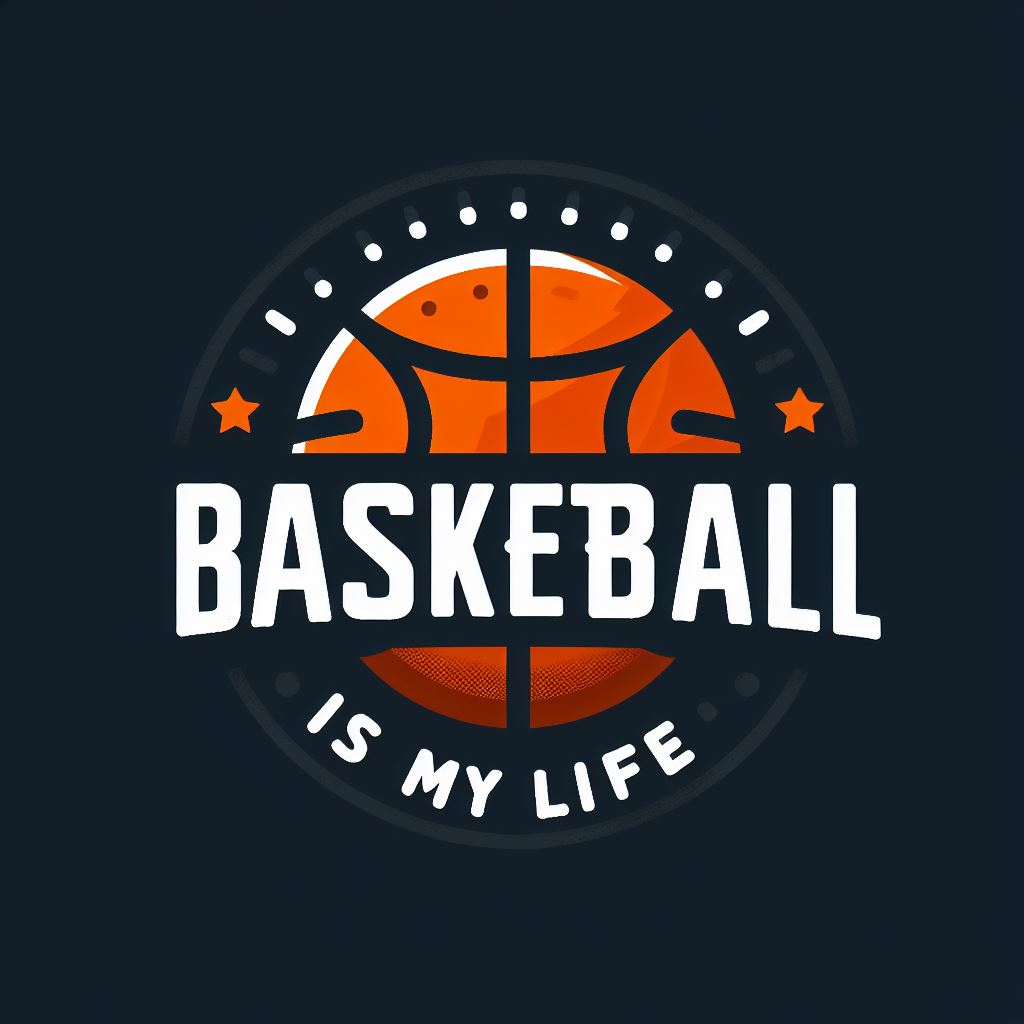A transcendent athlete joins a Los Angeles team at the peak of his career.
The city’s sporting landscape vibrates with impatience.
The tickets disappear. Jerseys are everywhere. The entire Southland wants to share the greatest sporting gem by choosing this city as its home.
No, Shaquille O’Neal.
When Ohtani visited Chavez Ravine this winter, despite the apparent electric singularity of the moment, he was simply following a path blazed 27 years earlier by an even bigger star.
Before Shohei, there was Shaq.
In the summer of 1996, the Lakers set the standard for bringing Hollywood to Hollywood, signing the free agent giant the Orlando Magic and sending the city into a frenzy.
It was so crazy that there would have been more reporters at O’Neal’s first practice than fans at Clippers games. It was so publicized that the bases of a regular gymnasium were overcrowded with press during his first exhibition game…in Hawaii.
By the way, remember how Ohtani homered in his first Dodgers spring training game? Well, O’Neal had 25 points and 12 rebounds in 26 minutes in that first exhibition game.
Yeah, Los Angeles has seen this before.
As some of the brightest lights in sports history fell on this city at the height of its glory, the The Kings traded for Wayne GretzkyTHE Lakers traded for Kareem Abdul-Jabbar And Wilt Chamberlain and signed LeBron JamesTHE Dodgers traded for Manny Ramirez and signed Darryl Strawberry – no trade has mirrored the Ohtani deal like Shaq’s does.
Like the old one Angel Ohtani, O’Neal left a team that couldn’t get him a ring and moved to a place built for championships. Despite teaming with young star Penny Hardaway, the Magic did not win a title in O’Neal’s four seasons there, and their three playoff runs ended in a sweep, including in the 1995 NBA Finals against the Houston Rockets.
Like Ohtani and his $700 million, O’Neal made the move with a record contract, his seven-year, $120 million contract the result of “the most significant bidding war in sports history American,” according to Mark of the Times. Heisler.
Although written almost three decades apart, even the headlines announcing the arrivals resonated with the same wild creativity.
“Sho Business,” read the Times in December 2023.
“Shaq-zamm” and “Lakers hit the Shaqpot” read the Times in July 1996.
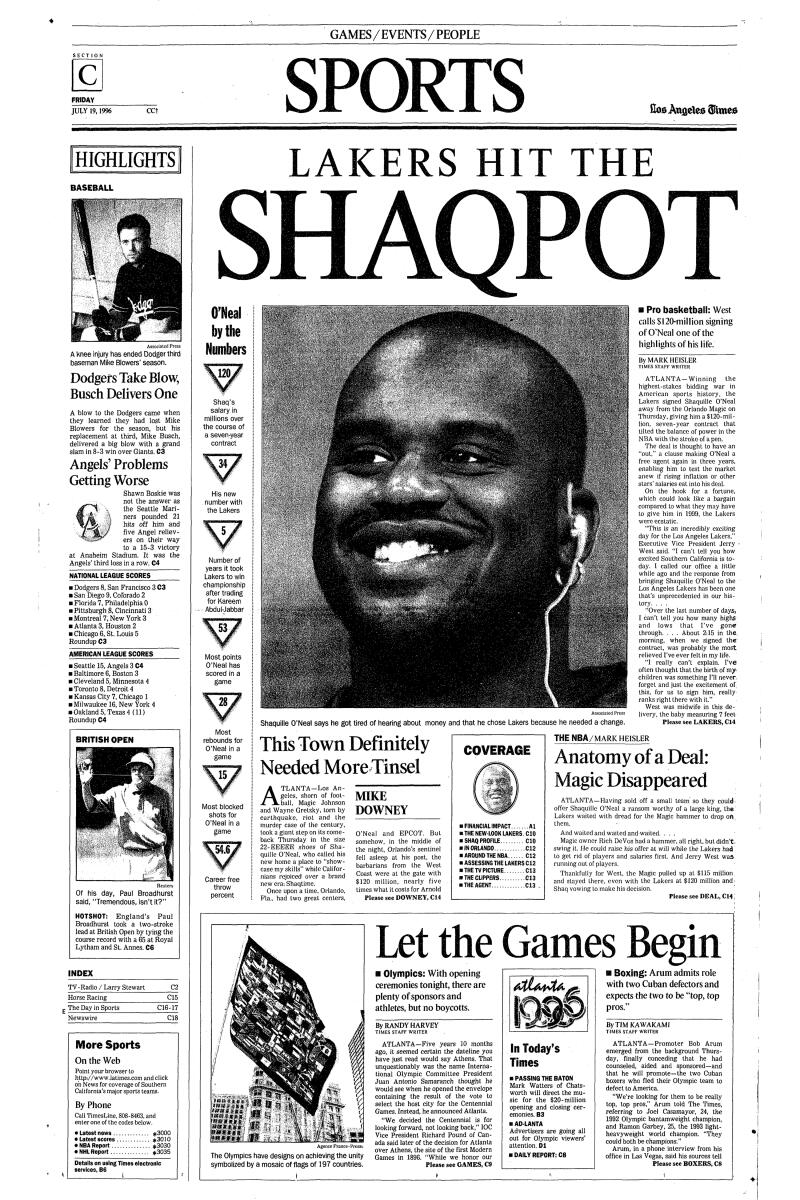
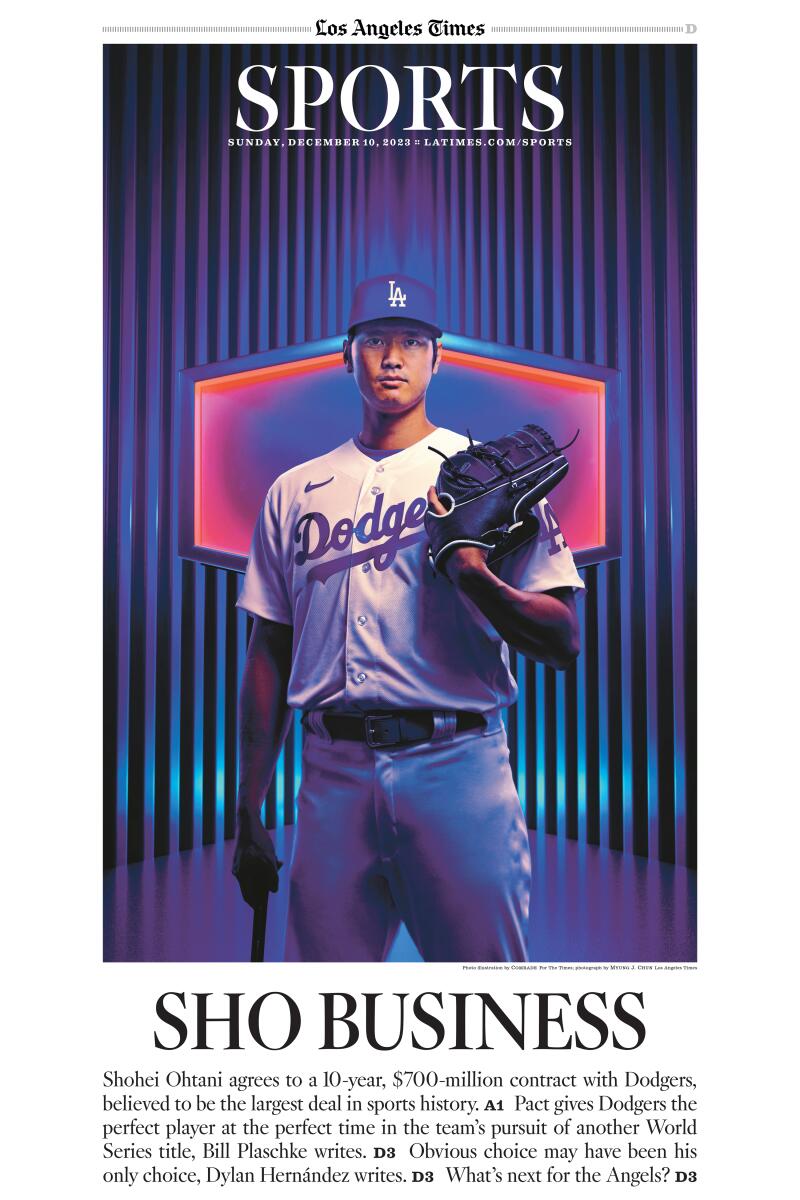
The first words of the athletes were also echoed.
“I would like to thank the Los Angeles Dodgers organization for giving me the opportunity to play here,” Ohtani said through a translator during his opening news conference. “I can’t wait to play for the Dodgers. They share the same passion as me, a vision and a story of victory.
Same for Shaq.
“I’ll be ready,” O’Neal said during his first Lakers practice in the summer of 1996. “I realize this organization has a great tradition of great men. I just want to add to the great tradition of this organization. I just want to win.”
Not only did the players have a similar motivation, but the anxiety felt by their team leaders was almost identical.
Andrew Friedman called Ohtani’s pursuit a grueling marathon.
“You know those crazy games where there are late lead changes and they graph it like this [on the Fangraphs website]? I think that’s kind of my range of emotions,” Friedman told reporters. “There were times when I felt more confident. There were times when I felt extremely depressed. It definitely took a while out of my life, I don’t know how long exactly, but it was a little.
Twenty-seven years earlier, Lakers basketball boss Jerry West described eerily similar feelings after landing O’Neal.
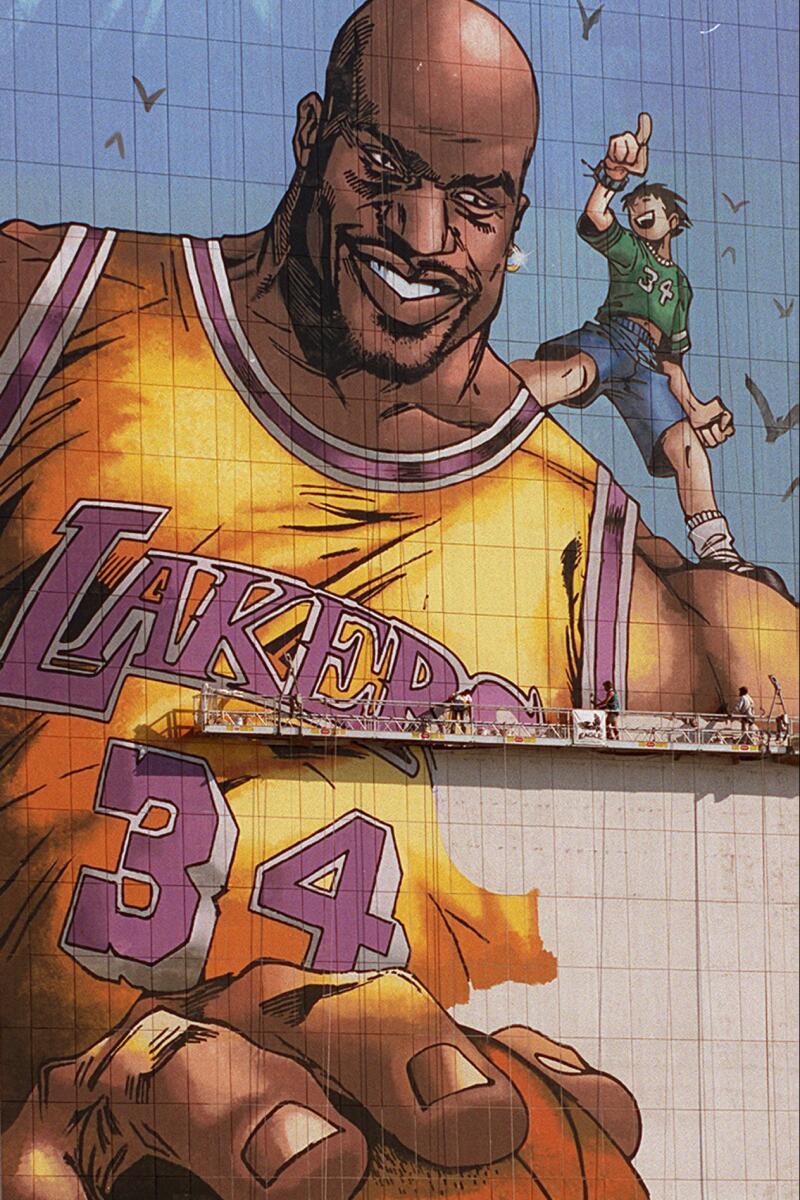
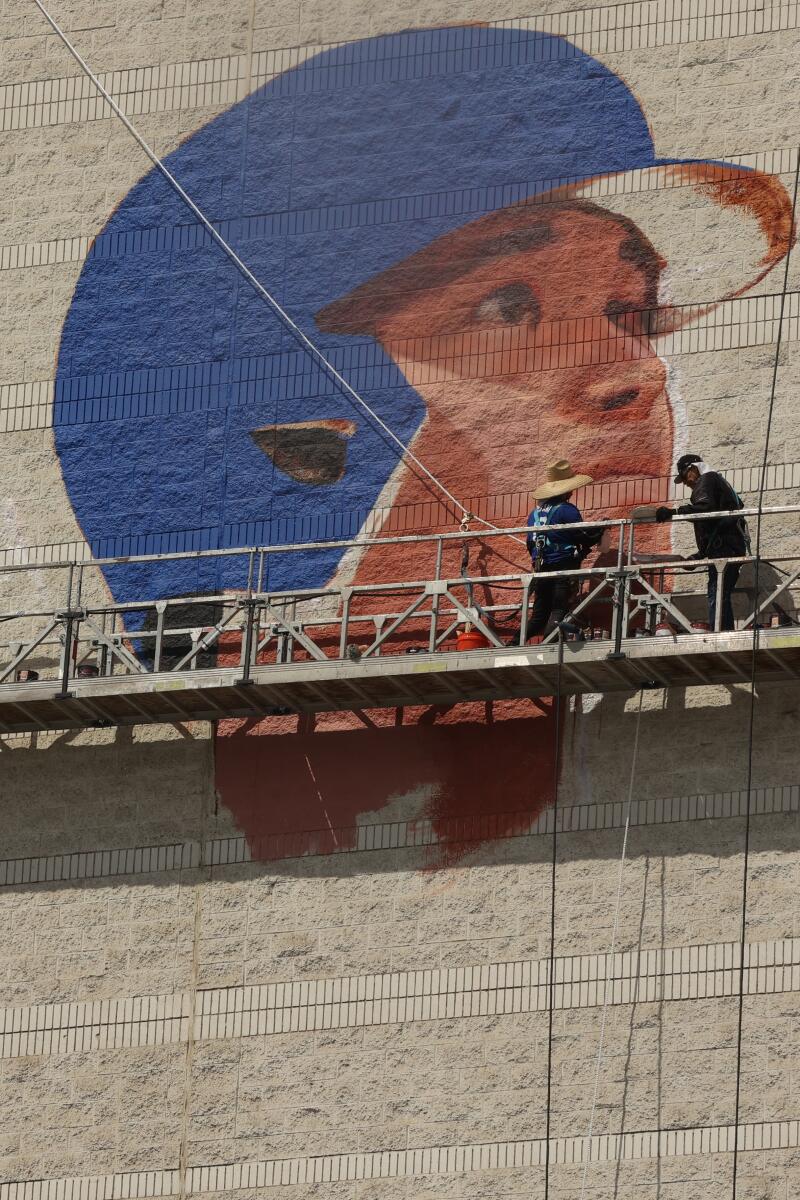
The artists are dwarfed by the image of new Laker Shaquille O’Neal on November 18, 1996, on the side of a building in downtown Los Angeles. (Chris Pizzello/Associated Press) A mural depicts new Dodger Shohei Ohtani on March 12. (Michael Blackshire/Los Angeles Times)
“Over the past few days, I can’t tell you how many ups and downs I’ve been through. … About 2:15 in the morning when we signed the contract, it was probably the most relieved moment I’ve ever felt in my life,” West said.
“I really can’t explain. I often thought that the birth of my children was something I would never forget and that the excitement of that, for us to sign it, was really at the forefront.
Athletes also came to Los Angeles with the same unique reputation.
Ohtani is known for being baseball’s first two-way star since Babe Ruth. The fact that he is one of the best hitters and pitchers in the sport makes him arguably the greatest player of all time.

(Bam Bam Yeh / For time)
O’Neal had similar unicorn status. No one had ever seen a 7-foot-1, 325-pound player so fast and athletic. He was difficult to guard and impossible to officiate.
Both stars also came here with big-game reputations, with Ohtani having propelled his Japan team to the gold medal in last year’s World Baseball Classic, and O’Neal winning the gold at the 1996 Summer Olympics.
All of these similarities are more than just chatter. In them we can discover a plan.
The way the Lakers treated O’Neal is the way every local team should treat their superstar. The Lakers got the most out of their big man, as he and Kobe Bryant led them to three straight NBA championships, with O’Neal winning three Finals Most Valuable Player awards. The relationship ended badly, but above all it was a wonderful marriage that somehow survived a chaotic environment.
The Dodgers can learn from this.
First of all, let Shohei be Shohei.
If he doesn’t want to interact with journalists regularly, don’t force him. If he wants to move from second to third in the batting order, let him. If he wants to try to play on the field, allow it. Treat him differently than other players because, well, he’s different.
O’Neal was eccentric. He was fun. He couldn’t make free throws and didn’t try. He was literally talking about everyone who guarded him. Some days he didn’t train. Some nights he would sulk if he couldn’t get his hands on him.
Not once did the Lakers discipline him, preferring to let his personality shine because they knew he would play best when he was happiest.
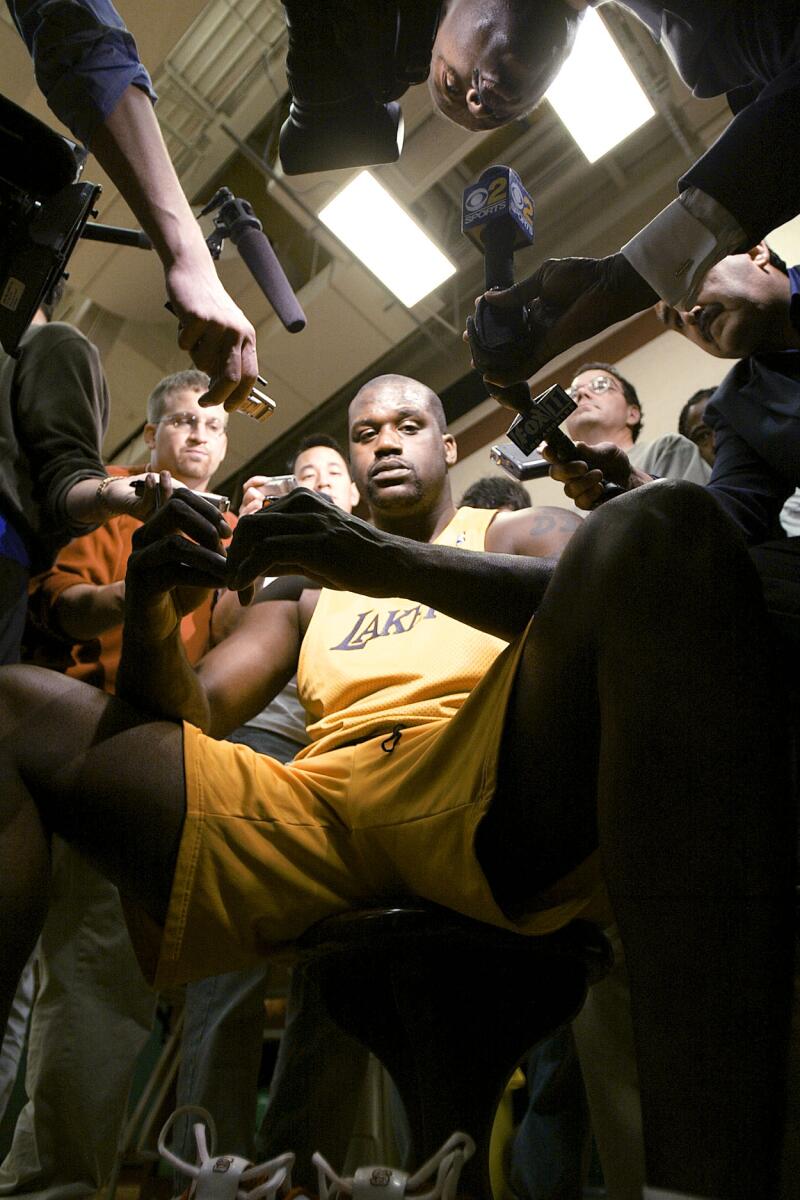
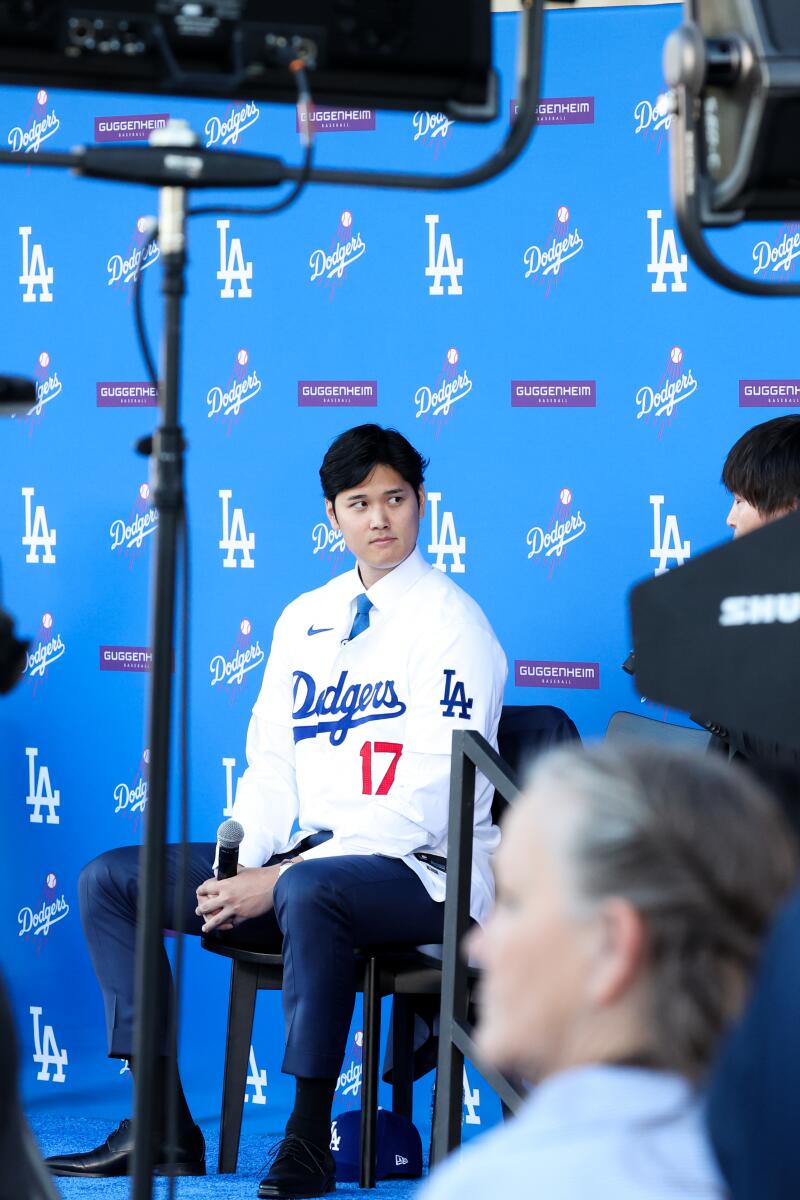
Shaquille O’Neal is surrounded as he answers questions after practice before Game 2 of the 2004 NBA Western Conference Finals. (Morry Gash/Associated Press) Shohei Ohtani prepares to speak during a press conference at Dodger Stadium on December 14. (Wally Skalij/Los Angeles Times)
One thing O’Neal took seriously was the people around him. He wanted a new coach; the intelligent Del Harris was abandoned in favor of Phil Jackson. He wanted new shooters; Longtime Lakers favorites Nick Van Exel and Eddie Jones were shipped out, while Glen Rice, Rick Fox and Robert Horry were brought in.
Ohtani hasn’t been a Dodger long enough to advocate for changes, and maybe he never will, but if he does, the bosses should listen to him. Longtime Dodgers fans will cringe at the thought of handing over so much power to one player, but that’s how it works in Tinseltown. If you have a star who can handle overwhelming pressure, you let them handle everything else.
In return, the Lakers can direct all the doubters to a towering statue outside Crypto.com Arena that pays homage to letting stars be stars.
Shaq will dunk forever.
Shohei, it’s your turn.
